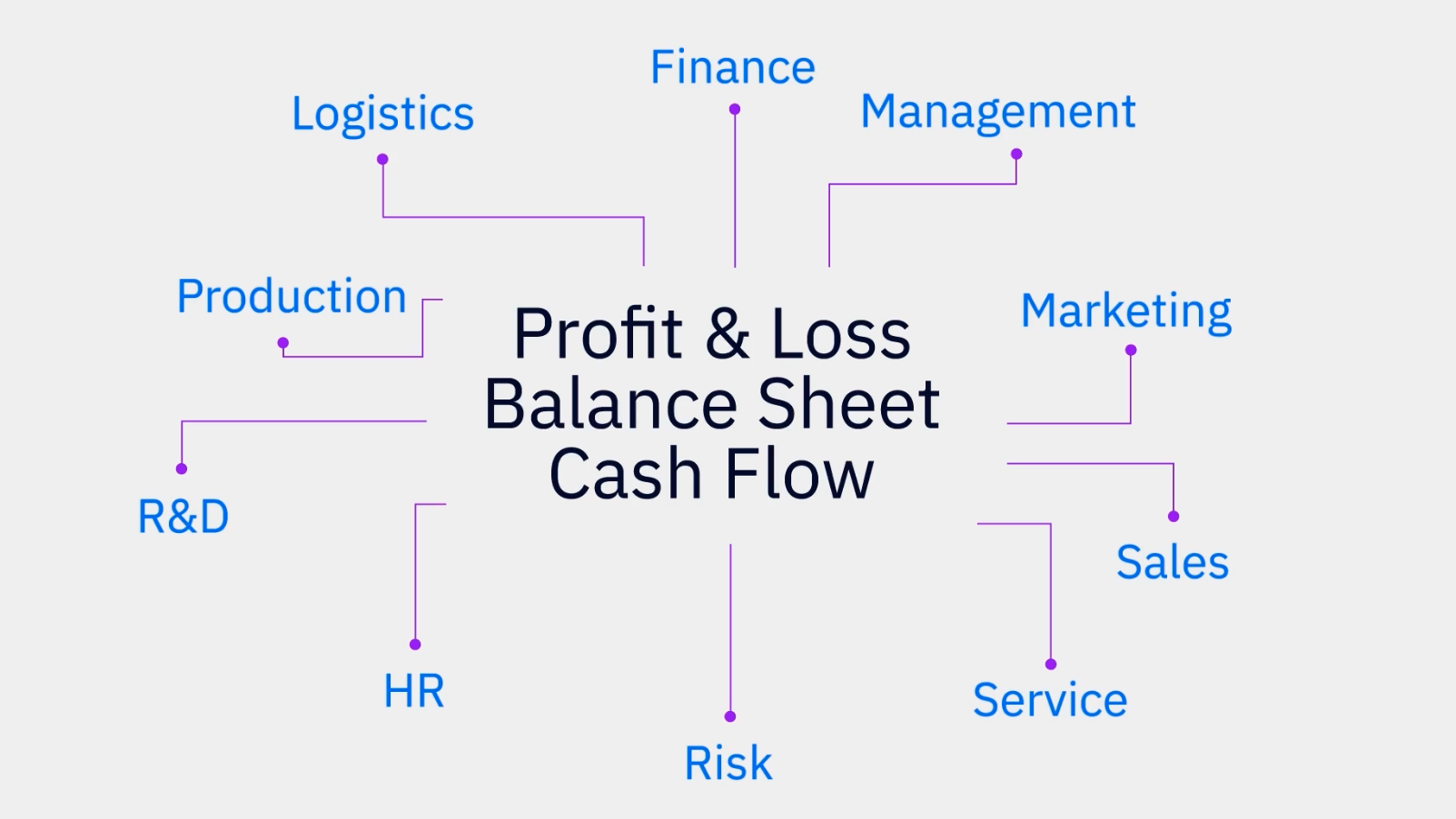IBM Envizi software module
ESG planning analytics
Automate and integrate ESG planning across your business
Turn AI-driven predictions into action
Book your ESG Optimiser demo hereAI-infused integrated business planning
Predict outcomes with flexible, AI-infused forecasting. Analyse large-scale and fine-grain what-if scenarios in real-time. Deploy as you need — on-premises or on cloud, including as a service on AWS.
Access data from multiple sources via an intuitive web interface or familiar Excel spreadsheets. The in-memory database (TM1) analyses big data fast to give real-time insights.

Applications
Sustainability teams
For sustainability planning, simulation and optimisation at any granularity level—even to calculate Product Carbon Footprint (PCF).
Finance teams and CFOs
For budgeting, forecasting and real-time analysis, to achieve consensus between income statements, balance sheets and cash flow.
Supply chain and operations managers
For demand planning, inventory optimisation, and distribution analysis. Get unlimited “what-if” scenario analyses and turn disruptions into opportunities.
Sales and territory managers
To track and analyse sales performance and sales capacity data in real-time. Automate resource allocation and territory planning, and increase market share.
HR and talent managers
To automate and streamline HR management processes—including employment, salary, bonuses, headcounts, and benefits planning—all on one platform.
IT managers and CIOs
To drive alignment between the IT department and other organisational goals with real-time visibility into resource allocation, spending, life cycles, owners and asset utilisation data.
Would you like to see how ESG Optimiser – our fully integrated ESG data and analytics platform works?
Book a 30 minute demo, and chat with an ESG data expert
Integrations
Ikano Insight offers IBM Planning Analytics solutions with APIs and ODATA that allow custom integrations for connectivity and data interchange between systems
SAP Connector
Direct, high-performance data transfer — c.20k records per second — from all current SAP systems, including S/4HANA, Business Warehouse, and ECC. Compatible with all ODATA SAP sources.
IBM Cognos Analytics
Combine robust planning features with advanced reporting and visualisation tools for real-time insights.
IBM Controller
Support the close, consolidation and reporting process. Enable finance teams to automate and accelerate the financial close with minimal IT support.
Benefits of integrated ESG planning analytics
Turn disparate unconnected data into actionable insight that drives ESG performance:
Understand profitability
Break down profitability streams in detail. Turn huge amounts of data into actionable insights.
Anticipate outcomes
Built-in AI capabilities and ‘what-if’ scenarios allow faster, more accurate forecasting
Unlock collaboration
The easy-to-use platform guides your team through planning and automating workflows

If you haven’t seen an overview of the complete ESG Optimiser solution, with 9 integrated platform modules, an additional 5 specialist tools, and a comprehensive implementation and support service, just click here.
Your ESG team
Ikano Insight’s team of expert sustainability consultants will guide your business through all aspects of sustainability strategy, from data management to GHG calculations, framework reporting to legislative audits and compliance, and software implementation to business performance improvement.
Our team are there to help you every step of the way, as little or as much as you need, on your sustainability journey.
Head of Sustainability
Peter Jones
peter.jones@insight.ikano
Snr Sustainability Business Analyst
Innes Christison
innes.christison@insight.ikano
Sustainability Business Analyst
Emily Blenkley
emily.blenkley@insight.ikano
Peter Jones
Head of Sustainability
Innes Christison
Snr Sustainability Business Analyst
Emily Blenkley
Sustainability Business Analyst
Frequently asked questions
What is ESG Planning Analytics, and why is it important?
ESG Planning Analytics refers to the use of data-driven tools and methodologies to analyse and plan around Environmental, Social, and Governance (ESG) factors in business operations and investments. It’s important because it helps organisations assess their ESG performance, identify risks and opportunities, and align their strategies with sustainable practices. By integrating ESG considerations into decision-making, companies can enhance their long-term resilience, meet regulatory requirements, and improve their reputation among stakeholders, including investors who are increasingly prioritising ESG criteria.
How can ESG Planning Analytics benefit my organisation?
ESG Planning Analytics offers several benefits:
- Risk Management: Helps identify and mitigate ESG-related risks that could impact the business.
- Operational Efficiency: Enables the optimisation of resources, reducing waste and improving energy efficiency.
- Regulatory Compliance: Assists in tracking and meeting evolving regulatory requirements related to ESG.
- Investor Attraction: Aligning with ESG criteria can make your company more attractive to socially responsible investors.
- Brand Reputation: Demonstrating a commitment to sustainability can enhance your brand image and customer loyalty.
What data is typically used in ESG Planning Analytics, and how is it collected?
ESG Planning Analytics relies on a variety of data, including:
- Environmental Data: Carbon emissions, energy usage, water consumption, waste management, and resource efficiency.
- Social Data: Employee diversity, labor practices, community engagement, health and safety records, and customer satisfaction.
- Governance Data: Board diversity, executive compensation, compliance with laws and regulations, ethical standards, and transparency in reporting.
Data is collected from internal sources (such as company reports, HR systems, and operational data) and external sources (such as third-party ESG rating agencies, government databases, and industry benchmarks).
What are the key challenges in implementing ESG Planning Analytics?
Key challenges include:
- Data Availability and Quality: Accessing reliable and comprehensive ESG data can be difficult, especially for smaller companies or in less regulated markets.
- Standardisation: The lack of universally accepted standards for ESG metrics can make it challenging to compare and analyse data across different companies or industries.
- Integration: Integrating ESG data into existing business processes and decision-making frameworks can require significant changes and investment.
- Regulatory Complexity: Navigating the evolving landscape of ESG regulations and ensuring compliance can be complex and resource-intensive.
How can we ensure the accuracy and reliability of ESG Planning Analytics?
Ensuring accuracy and reliability involves several steps:
- Data Verification: Implement robust processes to verify and validate ESG data, including cross-referencing with external sources and conducting regular audits.
- Standardisation: Adopt recognized ESG reporting frameworks and standards, such as GRI (Global Reporting Initiative) or SASB (Sustainability Accounting Standards Board), to ensure consistency and comparability.
- Technology: Utilise advanced analytics tools and AI-driven platforms that can process large volumes of data accurately and provide predictive insights.
- Continuous Monitoring: Regularly review and update ESG metrics and analytics processes to adapt to new regulations, stakeholder expectations, and emerging risks.
- Training and Expertise: Invest in training for staff to improve their understanding of ESG issues and analytics, ensuring that the data is interpreted and used effectively.
Book a demo

Let’s chat!
If you’d like to chat with us to see how we can help you achieve your sustainability goals, including measurement, reporting and compliance, just pick a time that suits you in Peter’s calendar.
Review your sustainability objectives, challenges and see which platform modules would match your needs.
Get in touch
Let’s chat!
If you’d like to chat with us to see how we can help you achieve your sustainability goals, including measurement, reporting and compliance, just pick a time that suits you in Peter’s calendar.
Review your sustainability objectives, challenges and see which platform modules would match your needs.
Related modules
Sustainability strategy advisory service
Build the right sustainability strategy for your business, be fully compliant, and become a better business
ESG process & technology scoping
Map data, hierarchies and processes to define your reporting needs and technology required
Sustainability diagnostic assessment
Rapidly analyse your current state of readiness and capabilities






